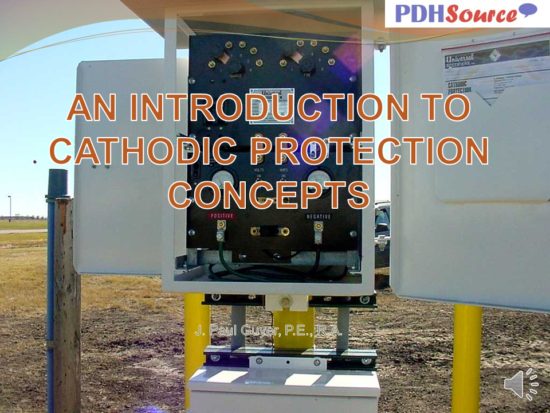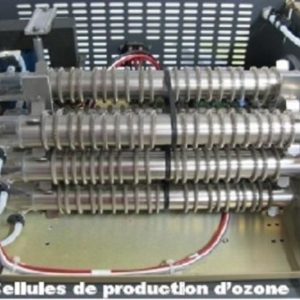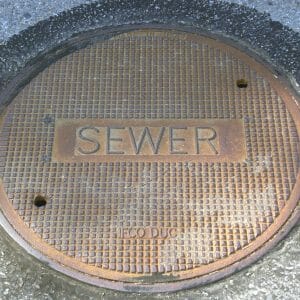Description
This course provides the basic concepts of cathodic protection, together with important criteria and precautions to be observed. Corrosion of metals is a result of electrochemical reactions. An electrochemical reaction is a chemical reaction accompanied by a flow of electrical current. The driving force for the corrosion of metals through electrochemical reactions is the free energy of the metal atoms in their metallic form. All chemical systems tend to change so that the free energy present is at a minimum. This is analogous to the flow of water downhill to minimize the free energy due to gravity. Most engineering metals are found in nature in a form with low free energy. These metal ores are chemical compounds consisting of the metal atoms combined with other atoms such as oxygen or sulfur. The process of breaking up these ores into their metallic and non-metallic atoms involves an addition of energy in order to free the metal atoms from the natural, low energy content chemical compounds. The corrosion process is driven by the tendency of these metal atoms to revert to their natural state. If corrosion products are analyzed, their chemical composition is usually identical to the ore from which the metal was originally obtained.
This course will give professional engineers and other design and construction professionals an introduction to the fundamentals of galvanic and impressed current cathodic protection systems.
- Learn about corrosion as an electrochemical process;
- Learn when cathodic protection should be considered to provide corrosion protection;
- Learn when site conditions make cathodic conditions feasible;
- Learn about sources of current for cathodic protection;
- Learn about the sacrificial anode method of cathodic protection;
- Learn about the impressed current method of cathodic protection; and
- Learn about anode materials and where they are applicable.
 E - 3044 Industrial Decarbonizaton Pathways
1 × $150.00
E - 3044 Industrial Decarbonizaton Pathways
1 × $150.00 ![[Live Webinar] Structural Integrity Assessment](data:image/png;base64,iVBORw0KGgoAAAANSUhEUgAAASwAAAEsAQAAAABRBrPYAAAAAnRSTlMAAHaTzTgAAAAiSURBVGje7cExAQAAAMKg9U9tCj+gAAAAAAAAAAAAAAB4GS20AAH/6QlrAAAAAElFTkSuQmCC) [Live Webinar] Structural Integrity Assessment
1 × $109.00
[Live Webinar] Structural Integrity Assessment
1 × $109.00  E - 3043 Introduction to Decarbonization
1 × $75.00
E - 3043 Introduction to Decarbonization
1 × $75.00 

 E - 3044 Industrial Decarbonizaton Pathways
E - 3044 Industrial Decarbonizaton Pathways ![[Live Webinar] Structural Integrity Assessment](https://nciteengineeringhub.com/wp-content/uploads/Structural-Integrity-Assessments-300x300.jpg) [Live Webinar] Structural Integrity Assessment
[Live Webinar] Structural Integrity Assessment  E - 3043 Introduction to Decarbonization
E - 3043 Introduction to Decarbonization 



